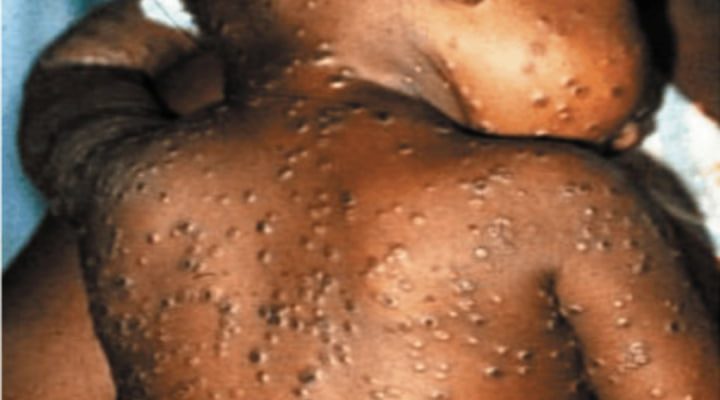Department of Medical Sciences, which has identified 8 sub-variants of the Mpox virus, confident that outbreak can be prevented
Laboratory tests of 191 Mpox patients in Thailand have found that the viruses are of Clade 2 strain, presenting in eight subvariants, with C.1 subvariant found in most cases in the Kingdom, the Department of Medical Sciences said on Monday.
Using the whole genome sequencing method, scientists found that these subvariants are A.2, A.2.1, B.1, B.1.12, B.1.3, B.1.7, C.1 and C.1.1, Dr Yongyos Thammawut, department’s director-general, said.
He said 85.34% of the cases are of C.1 subvariant, followed by A.2.1 (5.76%), C.1.1 (3.66%), and A.2 (2.09%).
Thailand’s dominant subvariant C.1 of Clade 2 strain is different than the one currently spreading in Africa, which is the original strain from Clade 1 and has now evolved into Clade 1b, he said, adding that the Clade 1b strain is more easily transmissible and can infect anyone in close proximity to a patient in just four hours.
Yongyos added that the Clade 2’s C.1 subvariant found in Thailand is far less severe that Clade 1 found in Africa, with mortality rate of less than 1% versus 10% in the latter. He added that the C.1 subvariant is also less transmissible and causes mild symptoms in people with normal level of immunity.
The director-general said his department and the Department of Disease Control have been monitoring the Mpox situation in Thailand closely and performing random testing periodically to detect any sign and patterns of possible outbreak.
He added that the department’s National Institute of Health has 62 laboratories in 24 provinces capable of testing Mpox and providing the result in 24 hours, ensuring Thailand’s readiness and efficiency to prevent the outbreak.
Dr Wasun Chantratita, head of the Virology Laboratory and Medical Genomic Centre at Ramathibodi Hospital, said that Mpox vaccine imported by the Thai Red Cross Society can prevent severe symptoms of the virus by 68% to 80%.
“It is highly recommended to get the shot before and after travelling to high risk countries in northern Africa such as Congo,” he said. “If possible, it is best to postpone the trip for now, especially if you are pregnant, as medical reports have confirmed that Clade 1b can be transmitted from mother to foetus.”



